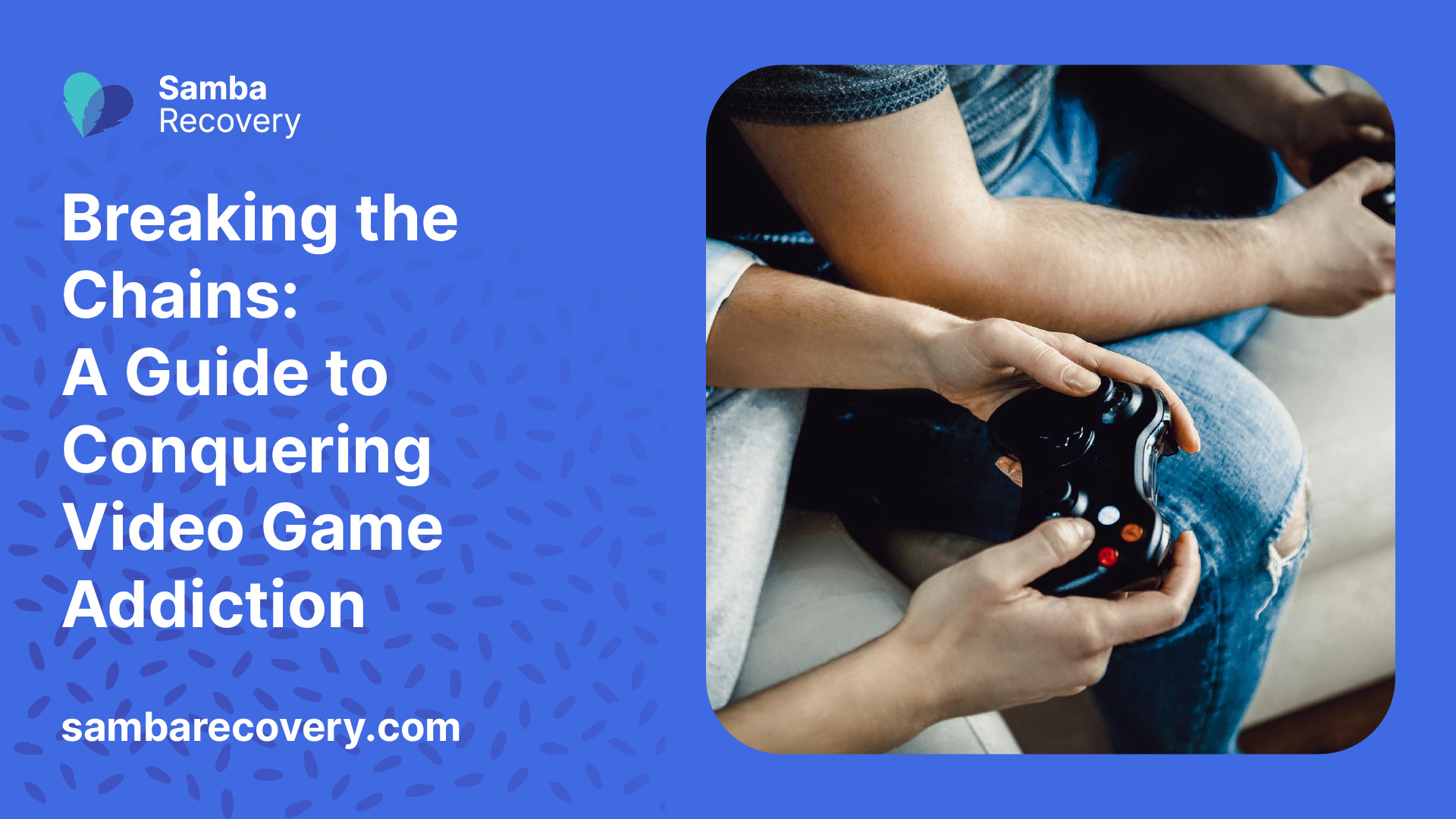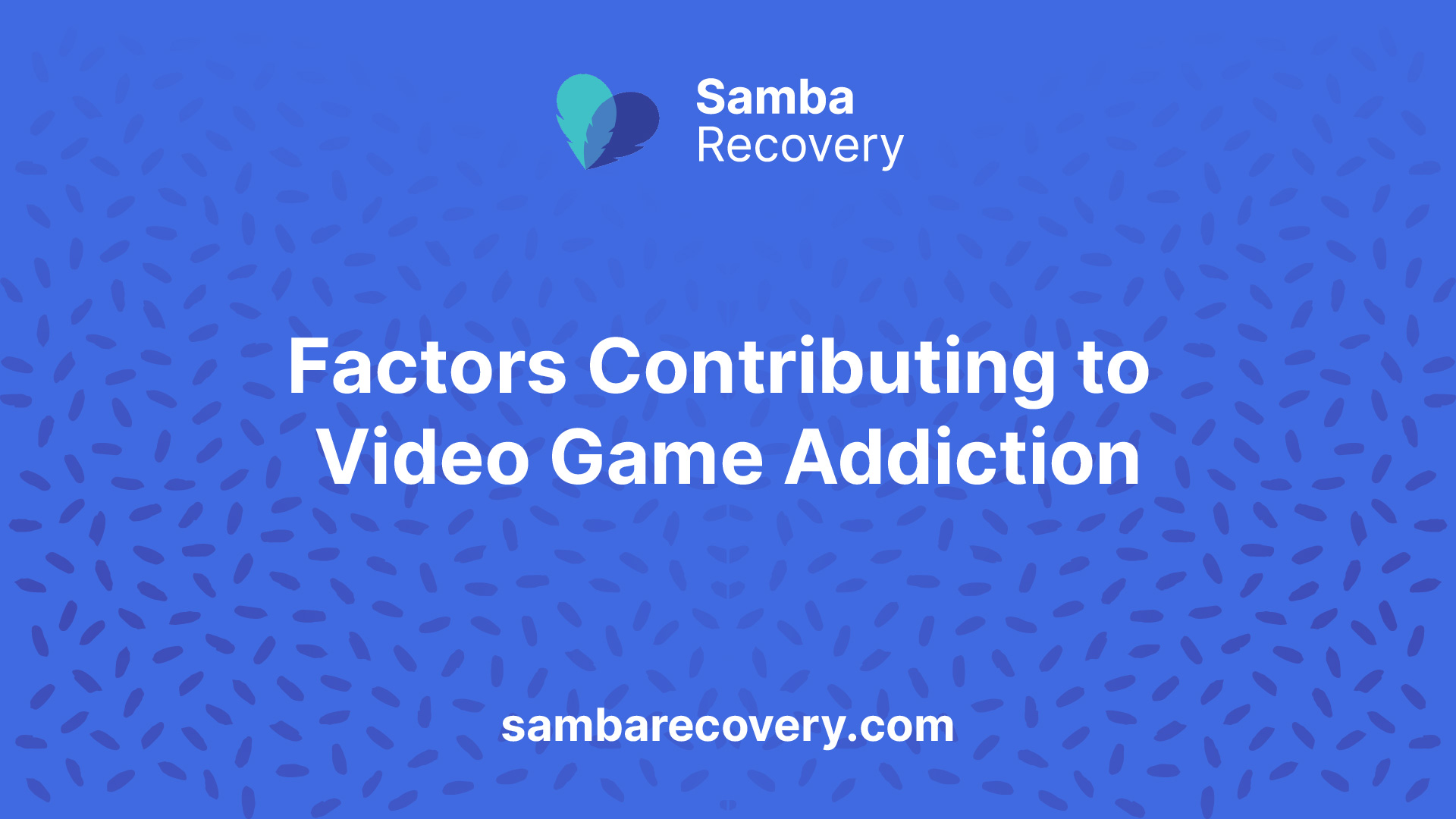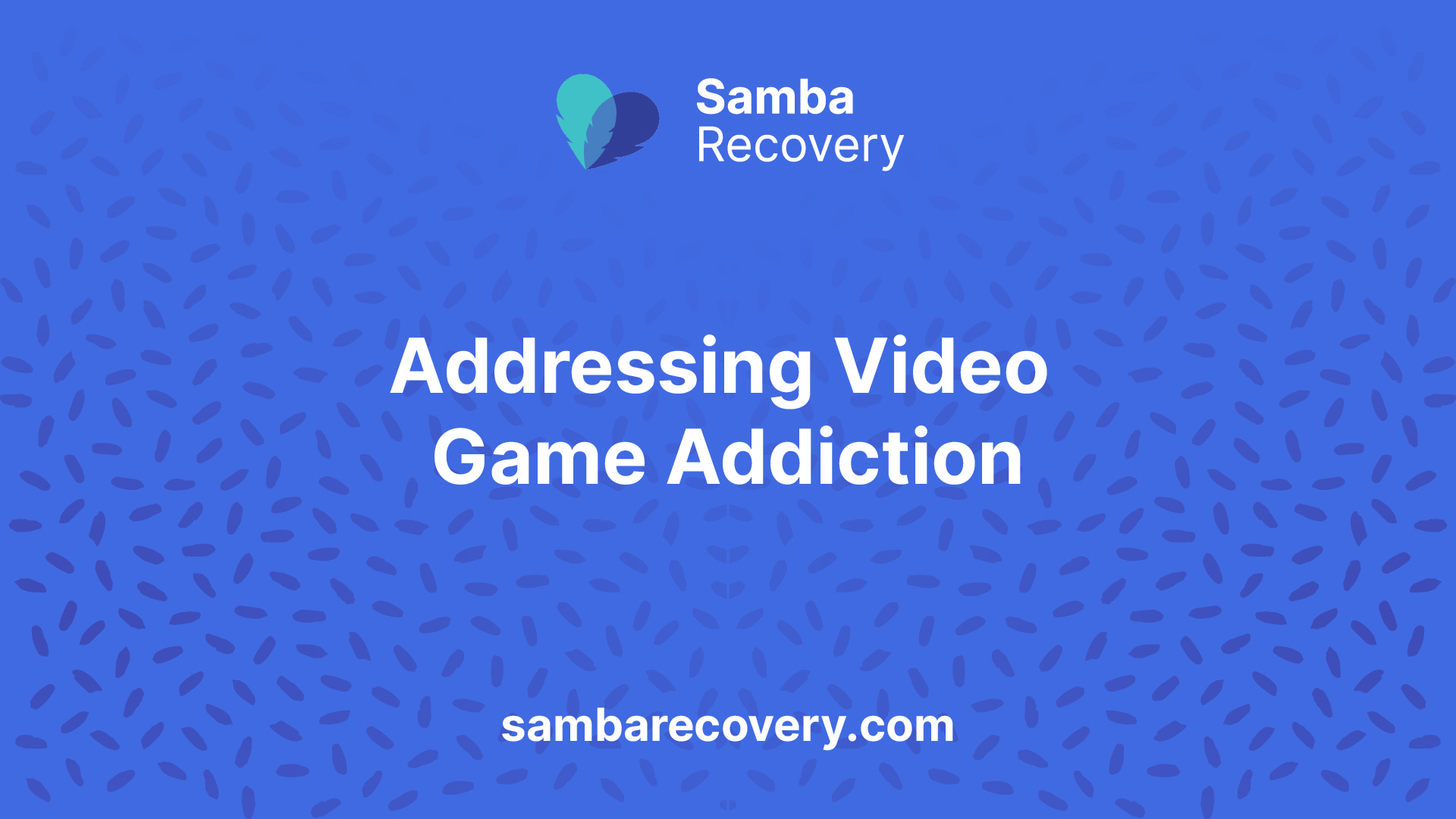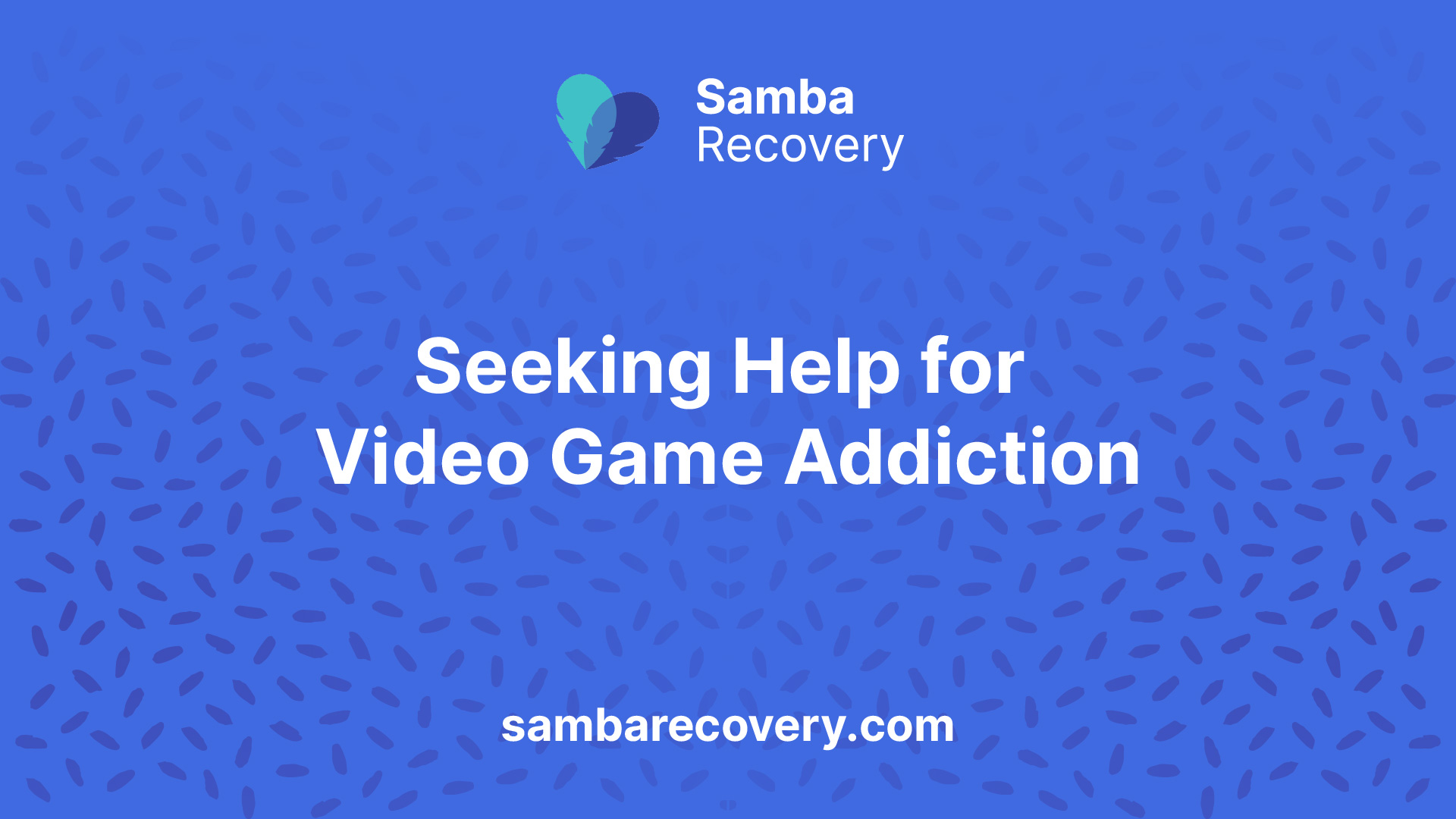
Understanding Video Game Addiction
Recognizing the Signs
Video game addiction is a serious issue that affects many individuals. Recognizing the signs early can help in taking the necessary steps to address the problem. Some warning signs of video game addiction include:
According to Family Addiction Specialist, approximately 15% of gamers have compulsive gaming issues, and up to 4% of gamers become pathologically addicted to playing video games. The World Health Organization officially recognized Gaming Disorder as a mental health issue in 2018. This disorder involves a persistent or recurrent compulsion to play video games despite negative consequences to personal and professional life, including educational issues, career problems, relationship disruptions, poor sleep hygiene, and mental or physical health issues.
Impact on Personal Life
The impact of video game addiction on personal life can be profound. As much as 1% of the worldâs population is thought to have a video game addiction, which can negatively affect their job, friendships, and overall well-being.
Video game addiction falls on a spectrum from mild problematic gaming to severe pathological gaming addiction. Any gaming that causes distress or life consequences could signify a problematic relationship with gaming [2].
Impact AreaPotential ConsequencesJob/CareerPoor performance, absenteeism, job lossFriendshipsIsolation, loss of friendships, social withdrawalPhysical HealthPoor sleep, unhealthy eating habits, lack of exerciseMental HealthIncreased stress, anxiety, depressionRelationshipsDisruption of family dynamics, conflict with loved ones
For those seeking help, professional guidance and family support can be crucial. More information on seeking help can be found in our sections on how to stop social media addiction and how to stop weed addiction.
Factors Contributing to Video Game Addiction

To effectively address video game addiction, it’s crucial to understand the factors that contribute to this condition. These factors can be broadly classified into psychological and behavioral risk factors.
Psychological Risk Factors
Several psychological factors can predispose an individual to video game addiction. These factors often intertwine, creating a complex web that makes it difficult to break free from the cycle of addiction.
Psychological Risk FactorDescriptionLow Self-EsteemEscape reality; create confident virtual personaLonelinessSeek social connections in gaming communitiesImpulsivityStruggle to control gaming habitsSocial AnxietyFind solace in less intimidating virtual interactions
Additionally, excessive gaming can lead to physical and mental health issues, such as vision problems and headaches. Education on injury prevention and taking regular breaks is essential [4].
Behavioral Risk Factors
Behavioral risk factors play a significant role in the development of video game addiction. Recognizing these patterns can help in identifying early signs of addiction and taking preventive measures.
Behavioral Risk FactorDescriptionNeglect of Daily ActivitiesIgnoring hygiene, social interactions, and responsibilitiesDistress and ConsequencesGaming causing distress or life consequencesTime Spent GamingExcessive gaming interfering with daily life
Understanding these psychological and behavioral risk factors is a critical step in learning how to stop video game addiction. For more information on related topics, check out our articles on how to stop social media addiction and how to stop phone addiction for students.
Addressing Video Game Addiction

Understanding how to stop video game addiction involves exploring various treatment options and support systems. This section delves into some effective strategies and resources available for those seeking help.
Treatment Options
Treatment for video game addiction primarily involves psychotherapy, which aims to help individuals identify and change troubling emotions, thoughts, and behaviors. Cognitive behavioral therapy (CBT) and motivational interviewing are commonly recommended for gaming addiction [3].
CBT focuses on recognizing and altering negative thought patterns and behaviors. It helps individuals develop healthier coping mechanisms and problem-solving skills.
This treatment enhances an individual’s motivation to change their behavior. It involves a collaborative conversation between the therapist and the patient to set goals and enhance commitment to recovery.
In addition to these therapies, public health approaches such as education and harm reduction, along with stricter labeling on packaging, are also effective.
Treatment OptionDescriptionCognitive Behavioral Therapy (CBT)Focuses on changing negative thought patterns and behaviors.Motivational InterviewingEnhances motivation to change through collaborative goal-setting.Family TherapyInvolves family members to improve communication and support.Public Health ApproachesEducation, harm reduction, and stricter labeling.
Support Groups
Support groups provide a platform for individuals struggling with video game addiction to connect with others and share recovery strategies. These groups offer encouragement, accountability, and a sense of community.
A fellowship of individuals who share their experiences, strengths, and hopes to help themselves and others recover from gaming addiction.
An online support community that provides resources and forums for individuals seeking to overcome their gaming addiction.
An online community offering support, resources, and educational content to help individuals quit gaming.
Support GroupDescriptionGaming Addicts AnonymousProvides a fellowship of individuals helping each other recover from gaming addiction.On-Line Gamers AnonymousOffers online resources and forums for support.Game QuittersAn online community with resources and educational content.
Seeking out support and guidance from a video game addiction professional is often necessary in severe cases or when previous attempts to disrupt the addiction have failed.
For more information on managing other addictions, visit our guides on how to stop social media addiction, how to stop weed addiction, and how to stop phone addiction for students.
Seeking Help for Video Game Addiction

Professional Guidance
Seeking professional help is essential for individuals struggling with severe video game addiction, especially when previous attempts to curb the habit have failed. A specialist can provide targeted interventions and therapies tailored to the individual’s needs. According to Family Addiction Specialist, professional intervention is crucial, particularly for children resistant to getting help.
The primary treatment for video game addiction, also known as internet gaming disorder, is psychotherapy. This approach helps individuals identify and modify troubling emotions, thoughts, and behaviors. Two effective types of psychotherapy for video game addiction are cognitive-behavioral therapy (CBT) and family therapy.
Treatment TypeDescriptionCognitive Behavioral Therapy (CBT)Helps individuals change negative thought patterns and behaviors.Family TherapyInvolves family members to support and understand the addiction.Motivational InterviewingEnhances an individual’s motivation to change.
For those seeking a unique rehab center in Georgia, exploring options that offer these therapies can be beneficial. Additionally, public health approaches like education, harm reduction, and stricter labeling on gaming packages are being developed to combat gaming addiction [4].
Family Support
Family support plays a pivotal role in addressing video game addiction. An understanding and supportive family environment can make a significant difference in recovery. Families can participate in therapy sessions to learn how to provide the necessary support and create a more conducive environment for recovery.
Support groups are also invaluable for both the individual and their family. Groups like Gaming Addicts Anonymous, On-Line Gamers Anonymous, and Game Quitters offer platforms for individuals to connect, share experiences, and develop recovery strategies [1].
Support GroupDescriptionGaming Addicts AnonymousOffers meetings and resources for those struggling with gaming addiction.On-Line Gamers AnonymousProvides online support and forums for individuals and families.Game QuittersA community focused on helping individuals quit gaming.
For families seeking comprehensive guidance on how to support a loved one with video game addiction, consider reading our articles on related topics such as how to stop social media addiction and how to stop phone addiction for students.
Prevention and Management Strategies
Effectively managing and preventing video game addiction involves setting clear boundaries and finding alternative activities to engage in. Here are some strategies to help.
Setting Limits and Boundaries
Establishing limits on gaming time is crucial in preventing addiction. According to the American Academy of Pediatrics, children over 6 years old should be limited to no more than 60 minutes of video game play on school days and 2 hours on non-school days. For children under 6, the limit should be less than one hour per day.
To enforce these limits, parents should set clear and consistent guidelines. It is beneficial to allow gaming only after homework and chores are completed. Additionally, keeping certain days of the week free from gaming can encourage engagement in other activities.
Age GroupSchool Days (minutes)Non-School Days (minutes)Under 6< 60< 606 and older60120
Parents should also monitor the content of the games their children are playing, ensuring they do not involve graphic violence or inappropriate content. Checking web history can help parents stay informed about their children’s gaming activities.
For more tips on setting boundaries for different types of addictions, visit our articles on how to stop social media addiction and how to stop phone addiction for students.
Alternatives to Gaming
Replacing excessive gaming with other recreational activities can help individuals find enjoyment beyond video games. Encouraging participation in sports, hobbies, and social activities can provide a balanced lifestyle and reduce dependency on gaming.
Positive reinforcement for non-gaming activities is also recommended to strengthen the parent-child relationship and promote a healthier routine. Here are some alternative activities to consider:
Encouraging these alternatives can help individuals develop a variety of interests and reduce the time spent on gaming.
For more information on managing different types of addictions, check out our articles on how to stop weed addiction and how to stop sex addiction.
By implementing these prevention and management strategies, individuals and families can work towards conquering video game addiction and promoting a healthier, well-rounded lifestyle.
Promoting Recovery
Consistency and Patience
Recovery from video game addiction can be challenging for both the individual and their loved ones. Consistency and patience are key elements in supporting someone with a video game addiction. A structured routine helps individuals maintain progress and avoid relapse. This structure includes setting clear boundaries and sticking to them.
Key ElementsDescriptionConsistencyMaintain a regular schedule for daily activities.PatienceUnderstand that recovery is a gradual process.
Family and friends should also show consistent support and encouragement. Attending support groups like Gaming Addicts Anonymous or Game Quitters can offer additional avenues for shared experiences and recovery strategies.
Self-Care and Emotional Support
Self-care and emotional support are crucial in the journey to overcome video game addiction. Ensuring that the individual has a well-rounded approach to their mental and physical health can significantly aid in recovery. This includes engaging in alternative recreational activities, such as sports or hobbies, which can replace excessive gaming behavior [5].
Self-Care ActivitiesEmotional Support StrategiesRegular ExerciseOpen CommunicationHealthy DietPositive ReinforcementAdequate SleepProfessional Counseling
Professional guidance may be necessary in severe cases or when previous attempts at recovery have failed. Seeking help from a video game addiction specialist can provide tailored strategies and interventions [2].
For more information on addressing different types of addictions, explore our guides on how to stop social media addiction, how to stop weed addiction, and how to stop phone addiction for students.
References
[2]:
[3]:
[4]:
[5]:






